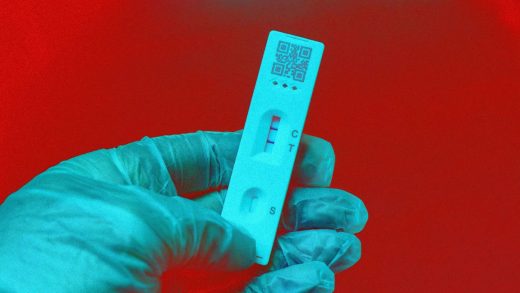Omicron vs. delta: Why it’s so hard to tell which COVID variant you have
As the nation swells with yet another deadly wave of the pandemic—this time from a second formidable mutation of the virus—many Americans are now testing positive for COVID-19 and wondering exactly which of the multiple variants in circulation they could be facing.
The relative prevalence of variants—such as the leading delta and omicron strains—governs discourse on the pandemic’s status. But that information is actually quite difficult to obtain—not just for patients, but for doctors, too. COVID-19 tests used today simply detect the presence of the virus but can’t identify the specific variant: That involves a separate genomic-sequencing process, often done in a separate lab, and it’s not logistically feasible for every positive-test sample to undergo sequencing. Health officials order it to be performed on a percentage of the positive-test samples in order to track the pandemic’s course, but citizens aren’t privy to their individual results. (In fact, viral samples are scrubbed of names before they’re parsed.)
Thus, variant statistics from the Centers for Disease Control and Prevention (CDC) are extrapolated from a representative data set, rather than a complete account of every reported case.
For those sick at home and wondering which strain they’re fighting, that’s hardly helpful. But for macro analysts, however, there is one quicker way to check if a case is of the currently surging omicron variant, based on the results of a polymerase chain reaction (PCR) test.
Researchers have discovered that omicron has a genetic sequencing unique from its fellow variants, delta and alpha: Its so-called S gene has a small deletion in it. This anomaly can be detected in a PCR test, as the S gene is one of three target genes that the substrate reacts with; in cases of omicron, the test will “miss” the mutated S gene, resulting in a band dropout referred to as “S-gene target failure.” The band dropout can be easily read by a laboratory technician, and is widely accepted as a tell for the variant pending sequencing confirmation.
However, experts caution that it’s not definitive—there have been recorded cases of omicron that did not present S-gene target failures in PCR tests. As with much of the COVID pandemic, scientists are still deciphering how and why. Thus, while an S-gene target failure is likely indicative of omicron, the lack of that marker could also still occur with omicron—or delta, or alpha, or any other variant.
On the other hand, for patients, that just leaves self-sleuthing—with symptoms of the illness as the only clues. But that’s easily foiled, too: While health agencies have described slight discrepancies in the classic symptoms for each variant, the symptoms are still very similar—and the virus can attack each person in a way that’s impossible to predict.
If it’s any comfort, knowing which variant you have won’t help you recover any faster. So might as well accept it: We’re staying in the dark here.
(64)



